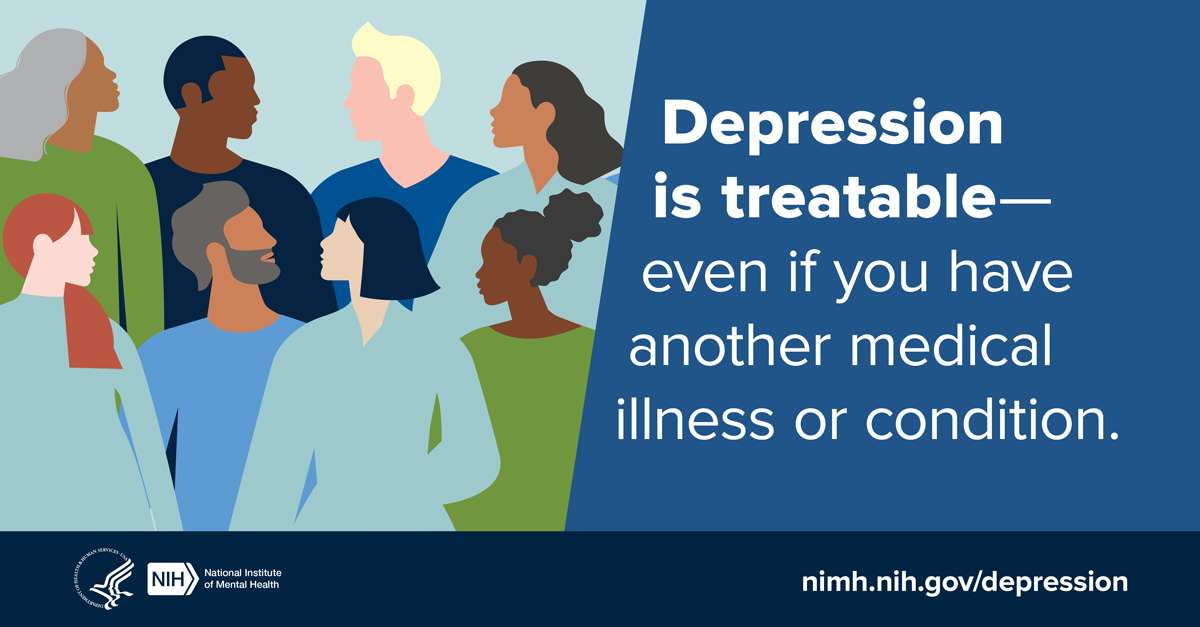Stress relievers: Tips to tame stress
Stress getting to you? Try some of these tips for stress relief.
By Mayo Clinic Staff
Is stress making you frustrated and irritable? Stress relievers can help restore calm and serenity to your chaotic life. You don’t have to invest a lot of time or thought into stress relievers. If your stress is getting out of control and you need quick relief, try one of these tips.
Get active
Virtually any form of physical activity can act as a stress reliever. Even if you’re not an athlete or you’re out of shape, exercise can still be a good stress reliever.
Physical activity can pump up your feel-good endorphins and other natural neural chemicals that enhance your sense of well-being. Exercise can also refocus your mind on your body’s movements, which can improve your mood and help the day’s irritations fade away. Consider walking, jogging, gardening, housecleaning, biking, swimming, weightlifting or anything else that gets you active.
Eat a healthy diet
Eating a healthy diet is an important part of taking care of yourself. Aim to eat a variety of fruits and vegetables, and whole grains.
Avoid unhealthy habits
Some people may deal with stress by drinking too much caffeine or alcohol, smoking, eating too much, or using illegal substances. These habits can harm your health.
Meditate
During meditation, you focus your attention and quiet the stream of jumbled thoughts that may be crowding your mind and causing stress. Meditation can instill a sense of calm, peace and balance that can benefit both your emotional well-being and your overall health.
Guided meditation, guided imagery, visualization and other forms of meditation can be practiced anywhere at any time, whether you’re out for a walk, riding the bus to work or waiting at the doctor’s office. You can also try deep breathing anywhere.
Laugh more
A good sense of humor can’t cure all ailments, but it can help you feel better, even if you have to force a fake laugh through your grumpiness. When you laugh, it not only lightens your mental load but also causes positive physical changes in your body. Laughter fires up and then cools down your stress response. So read some jokes, tell some jokes, watch a comedy or hang out with your funny friends. Or give laughter yoga a try.
Connect with others
When you’re stressed and irritable, your instinct may be to isolate yourself. Instead, reach out to family and friends and make social connections.
Social contact is a good stress reliever because it can offer distraction, provide support and help you tolerate life’s up and downs. So take a coffee break with a friend, email a relative or visit your place of worship.
Got more time? Consider volunteering for a charitable group and help yourself while helping others.
Assert yourself
You might want to do it all, but you can’t, at least not without paying a price. Learning to say no or being willing to delegate can help you manage your to-do list and your stress.
Saying yes may seem like an easy way to keep the peace, prevent conflicts and get the job done right. But it may actually cause you internal conflict because your needs and those of your family come second, which can lead to stress, anger, resentment and even the desire to exact revenge. And that’s not a very calm and peaceful reaction.
Try yoga
With its series of postures and controlled-breathing exercises, yoga is a popular stress reliever. Yoga brings together physical and mental disciplines which may help you achieve peacefulness of body and mind. Yoga can help you relax and manage stress and anxiety.
Try yoga on your own or find a class — you can find classes in most communities. Hatha yoga, in particular, is a good stress reliever because of its slower pace and easier movements.
Get enough sleep
Stress can cause you to have trouble falling asleep. When you have too much to do — and too much to think about — your sleep can suffer. But sleep is the time when your brain and body recharge.
And the quality and amount of sleep you get can affect your mood, energy level, concentration and overall functioning. If you have sleep troubles, make sure that you have a quiet, relaxing bedtime routine, listen to soothing music, put clocks away, and stick to a consistent schedule.
Keep a journal
Writing down your thoughts and feelings can be a good release for otherwise pent-up emotions. Don’t think about what to write — just let it happen. Write whatever comes to mind. No one else needs to read it, so don’t strive for perfection in grammar or spelling.
Just let your thoughts flow on paper — or computer screen. Once you’re done, you can toss out what you wrote or save it to reflect on later.
Get musical and be creative
Listening to or playing music is a good stress reliever because it can provide a mental distraction, reduce muscle tension and decrease stress hormones. Crank up the volume and let your mind be absorbed by the music.
If music isn’t one of your interests, turn your attention to another hobby you enjoy, such as gardening, sewing, sketching — anything that requires you to focus on what you’re doing rather than what you think you should be doing.
Seek counseling
If new stressors are challenging your ability to cope or if self-care measures just aren’t relieving your stress, you may need to look for reinforcements in the form of therapy or counseling. Therapy also may be a good idea if you feel overwhelmed or trapped, if you worry excessively, or if you have trouble carrying out daily routines or meeting responsibilities at work, home or school.
Professional counselors or therapists can help you identify sources of your stress and learn new coping tools.
There is a problem with information submitted for this request. Review/update the information highlighted below and resubmit the form.
From Mayo Clinic to your inbox
Sign up for free, and stay up to date on research advancements, health tips and current health topics, like COVID-19, plus expertise on managing health.
ErrorEmail field is required
ErrorInclude a valid email address
To provide you with the most relevant and helpful information, and understand which information is beneficial, we may combine your email and website usage information with other information we have about you. If you are a Mayo Clinic patient, this could include protected health information. If we combine this information with your protected health information, we will treat all of that information as protected health information and will only use or disclose that information as set forth in our notice of privacy practices. You may opt-out of email communications at any time by clicking on the unsubscribe link in the e-mail.
Thank you for subscribing!
You’ll soon start receiving the latest Mayo Clinic health information you requested in your inbox.
Sorry something went wrong with your subscription
Please, try again in a couple of minutes
- How stress affects your health. American Psychological Association. http://www.apa.org/helpcenter/stress.aspx. Accessed Feb. 28, 2019.
- Relaxation techniques for health. National Center for Complementary and Integrative Health. https://nccih.nih.gov/health/stress/relaxation.htm. Accessed Feb. 28, 2019.
- Stress and your health. U.S. Department of Health and Human Services. https://www.womenshealth.gov/mental-health/good-mental-health/stress-and-your-health. Accessed Feb. 27, 2019.
- 5 things you should know about stress. National Institute of Mental Health. https://www.nimh.nih.gov/health/publications/stress/index.shtml. Accessed Feb. 28, 2019.
- Meditation: In depth. National Center for Complementary and Integrative Health. https://nccih.nih.gov/health/meditation/overview.htm. Accessed Feb. 28, 2019.
- Yoga: In depth. National Center for Complementary and Integrative Health. https://nccih.nih.gov/health/yoga/introduction.htm. Accessed Feb. 28, 2019.
- Seaward BL. Essentials of Managing Stress. 4th ed. Burlington, Mass.: Jones & Bartlett Publishers; 2017.
See more In-depth
February 2, 2022
Practicing even a few minutes per day can provide a reserve of inner calm

We all face stressful situations throughout our lives, ranging from minor annoyances like traffic jams to more serious worries, such as a loved one’s grave illness. No matter what the cause, stress floods your body with hormones. Your heart pounds, your breathing speeds up, and your muscles tense.
This so-called “stress response” is a normal reaction to threatening situations honed in our prehistory to help us survive threats like an animal attack or a flood. Today, we rarely face these physical dangers, but challenging situations in daily life can set off the stress response. We can’t avoid all sources of stress in our lives, nor would we want to. But we can develop healthier ways of responding to them.
One way is to invoke the “relaxation response,” through a technique first developed in the 1970s at Harvard Medical School by cardiologist Dr. Herbert Benson, editor of the Harvard Medical School Special Health Report Stress Management: Approaches for preventing and reducing stress. The relaxation response is the opposite of the stress response. It’s a state of profound rest that can be elicited in many ways. With regular practice, you create a well of calm to dip into as the need arises.
Following are six relaxation techniques that can help you evoke the relaxation response and reduce stress.
1. Breath focus. In this simple, powerful technique, you take long, slow, deep breaths (also known as abdominal or belly breathing). As you breathe, you gently disengage your mind from distracting thoughts and sensations. Breath focus can be especially helpful for people with eating disorders to help them focus on their bodies in a more positive way. However, this technique may not be appropriate for those with health problems that make breathing difficult, such as respiratory ailments or heart failure.
2. Body scan. This technique blends breath focus with progressive muscle relaxation. After a few minutes of deep breathing, you focus on one part of the body or group of muscles at a time and mentally releasing any physical tension you feel there. A body scan can help boost your awareness of the mind-body connection. If you have had a recent surgery that affects your body image or other difficulties with body image, this technique may be less helpful for you.
3. Guided imagery. For this technique, you conjure up soothing scenes, places, or experiences in your mind to help you relax and focus. You can find free apps and online recordings of calming scenes—just make sure to choose imagery you find soothing and that has personal significance. Guided imagery may help you reinforce a positive vision of yourself, but it can be difficult for those who have intrusive thoughts or find it hard to conjure up mental images.
4. Mindfulness meditation. This practice involves sitting comfortably, focusing on your breathing, and bringing your mind’s attention to the present moment without drifting into concerns about the past or the future. This form of meditation has enjoyed increasing popularity in recent years. Research suggests it may be helpful for people with anxiety, depression, and pain.
5. Yoga, tai chi, and qigong. These three ancient arts combine rhythmic breathing with a series of postures or flowing movements. The physical aspects of these practices offer a mental focus that can help distract you from racing thoughts. They can also enhance your flexibility and balance. But if you are not normally active, have health problems, or a painful or disabling condition, these relaxation techniques might be too challenging. Check with your doctor before starting them.
6. Repetitive prayer. For this technique, you silently repeat a short prayer or phrase from a prayer while practicing breath focus. This method may be especially appealing if religion or spirituality is meaningful to you.
Rather than choosing just one technique, experts recommend sampling several to see which one works best for you. Try to practice for at least 20 minutes a day, although even just a few minutes can help. But the longer and the more often you practice these relaxation techniques, the greater the benefits and the more you can reduce stress.
– By Julie Corliss
Executive Editor, Harvard Heart Letter
Image: FatCamera/Getty Images



